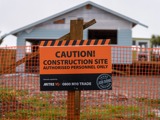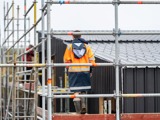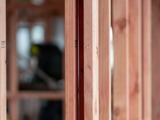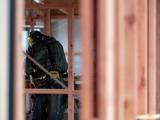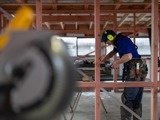The Ministry of Business Innovation and Employment (MBIE) (www.building.govt.nz) is the government department responsible for administering the Building Act 2004.
Frequently asked questions
Read our frequently asked questions below to find out what you need to know for your next building project in Buller.
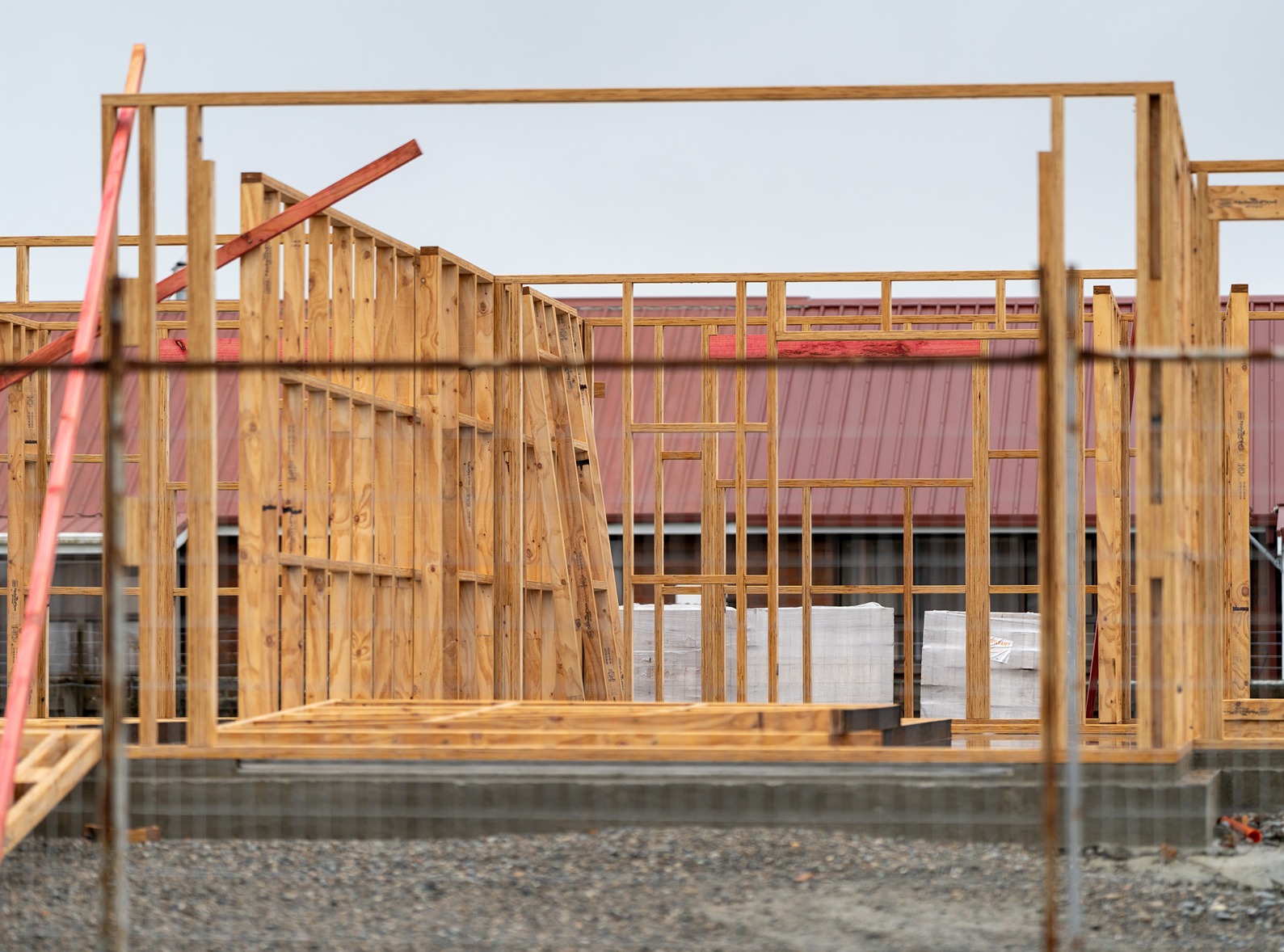
What is a Building Consent?
A Building Consent is the formal approval issued by a Building Conset Authority that certain works meet the requirements of the New Zealand Building Act, Building Regulations and Building Code.
Most building work requires a Building Consent, but some minor work is exempt under the Act. Exempt work is documented in Schedule 1 of the Building Act 2004. This may be viewed on the web at www.building.govt.nz . If you would like Council to confirm whether your project is exempt under Schedule 1, you will need to complete an exemption application form and supply scale plans of the project (including a site plan where applicable). An inspector will assess your plans and give you written confirmation as to whether a consent is required.
The processing of exemption applications is charged out on an hourly basis with a minimum deposit fee and full cost recovery.
Frequently asked questions
Read our frequently asked questions below or download our comprehensive customer information to find out what you need to know for your next building project in Buller.
Who administers the Building Act?
What is a Building Consent Authority?
Building Consent Authorities are organisations accredited and registered under Section 273 of the Building Act 2004 and are responsible for performing building control functions under Part 2 of the Act.
Buller District Council is a local Territorial Authority that has been accredited as a Building Consent Authority – herein referred to as Council.
What is a Project Information Memorandum (PIM)?
A Project Information Memorandum (PIM) is a memorandum issued by Council under section 34 of the Act and sets out information relevant to your building work. Council does not issue a PIM unless one has specifically been requested. However, a PIM can be an extremely useful tool to help with design requirements and may reduce time and costs during the consent approval process.
A PIM must include all such information known to Council which may be relevant to the project or site including any known or potential erosion, falling debris, subsidence, slippage, inundation, or the presence of hazardous contaminants which are likely to be relevant to the design, construction or alteration of your proposed building which are known to Council.
Details of stormwater or wastewater utility systems which may relate to your project or site will also be included (where applicable).
Contact Council Planners, to determine whether your proposal complies with the District Plan. If it does not, and resource consent is required, you are strongly advised to obtain this before seeking Building Consent to avoid possible expensive changes to your proposal.
An application for a PIM may be made using our online electronic system or in hardcopy using the PIM application form. Applications must be accompanied by a site plan, floor plan, building elevations and proof of ownership such as a Certificate of Title or Sale and Purchase Agreement.
Council is required to issue the PIM within twenty (20) working days of application being received. Providing all fees are paid, the PIM will be emailed or posted to the applicant when it is issued. Sometimes it may be necessary for Council to obtain further information from you to enable your PIM processing to be completed. In such cases the Council will contact you requesting the required information and when this is received Council has a further 10 working days to issue the PIM.
How and where do I apply for a Building Consent?
Building consents can be applied for online by heading to bullerdc.govt.nz/ApplyingForConsent Here you will be able to apply for a building consent online via the AlphaOne system. Hardcopy applications can be printed from our website or are available at Council offices in Westport and Reefton.
If you provide or are requested to provide a Producer Statement, what is it?
A producer statement is a professional opinion based on sound judgement and specialist expertise. It is not a product warranty or guarantee of compliance.
While producer statements are well-established and widely used, they have no particular status under the Building Act 2004. They are used as one source of information which Council may rely upon to determine whether there are reasonable grounds to conclude that the work complies with the Building Code.
In considering whether to accept a producer statement, Council will assess the credentials of the author to ensure the person has the appropriate experience and competence in their particular field of expertise. Council will also carry out inspections of any building work.
Producer statements are typically used for specialist work, such as engineering, or where there is a proprietary product which is installed by appointed contractors. Aspects of this work will be outside Councils in house expertise and a producer statement can assist when determining whether the building work complies with the Building Code.
There are currently four types of producer statement, all with generally widespread acceptance. They are known as:
- PS 1 -Design
- PS 2 -Design Review
- PS 3 -Construction (often used by the installers of proprietary systems)
- PS 4 -Construction Review
For more information regarding Producer Statements head to: www.building.govt.nz/ producer-statements/
Garages, sleepouts and conversions
You are advised to also talk to Council’s Duty Planner Creating about creating extra accommodation on site as this may not be a permitted activity under the Buller District Plan which limits habitable building (or part buildings) in the Residential and Commercial zones to a maximum of two per site, even if they are not self-contained, and you may also not comply with the maximum site coverage.
Garages and sleepouts if not meeting the exempt rules will require building consent approval.
Conversions of existing buildings (garage into a sleepout) will require building consent approval as a change of use to ensure all required Building Code clauses are assessed.
For information and guidance on tiny homes please read the MBIE tiny houses guide
Land affected by a natural hazard
If you are thinking about carrying out building works, it is important to consider any natural hazards that may affect how the project complies with the Building Act 2004 and the New Zealand Building Code. Natural hazards include erosion (including coastal, bank, and sheet erosion), falling debris (including soil, rock, snow, ice); subsidence, inundation (including flooding, overland flow, storm surge, tidal effects, ponding) and slippage.
The Council can refuse to grant a building consent in some circumstances, or it can grant consent subject to conditions under the Building Act 2004. For more information on this see our separate information sheet Building on land subject to a Natural Hazard.
Buildings sited across boundaries
A building consent cannot be granted for buildings across boundaries unless a certificate has been issued under the Building Act 2004 which requires that an entry be recorded on the computer register (formerly known as a certificate of title) and once the certificate has been endorsed none of the affected allotments may be transferred, sold or leased except in conjunction with one another.
Alterations to Existing Buildings (Section 112 of the New Zealand Building Act)
If you intend to alter an existing building, you will need to provide sufficient information to show how the building will comply once the work is completed particularly in regard to ‘means of escape from fire’ and ‘access and facilities for people with disabilities. Your application should detail the level of work that would be required for the building to fully comply with the Building Code and the work that is proposed to be done.
Change of use of Building (Section 115 of the New Zealand Building Act)
Change of use of Building (Section 115 of the New Zealand Building Act)
An owner of a building must not change the use of the building:
(a) in a case where the change involves the incorporation in the building of 1 or more household units where household units did not exist before, unless the territorial authority gives the owner written notice that the territorial authority is satisfied, on reasonable grounds, that the building, in its new use, will comply, as nearly as is reasonably practicable, with the building code in all respects; and
(b) in any other case, unless the territorial authority gives the owner written notice that the territorial authority is satisfied, on reasonable grounds, that the building, in its new use, will—
(i) comply, as nearly as is reasonably practicable and to the same extent as if it were a new building, with the provisions of the building code that relate to—
(A) means of escape from fire, protection of other property, sanitary facilities, structural performance, and fire-rating performance; and
(B) access and facilities for persons with disabilities (if this is a requirement under section 118); and
(ii) continue to comply with the other provisions of the building code to at least the same extent as before the change of use.
Extension of life (Section 116 of the New Zealand Building Act)
If you intend to extend the specified life of a building, you must obtain written consent from Council.
Subdivision affecting a building (Section 116a of the New Zealand Building Act)
Council may not issue a certificate under section 224(f) of the Resource Management Act 1991 for the purpose of subdividing a building or part of a building, unless satisfied, on reasonable grounds that the building will comply as nearly as is reasonably practicable, with every provision of the building code that relates to means of access from fire, access and facilities for persons with disabilities (if required under section 118), protection of other property and will continue to comply with the other provisions of the building code to at least the same extent as it did before the subdivision application was made.
Restricted building is work that’s critical to make a home structurally sound and weathertight. You must us Licensed Building Practitioners (LBPs) to design and carry out this work.
LBPs are registered to keep their skills and knowledge up to date. LBPs are licensed for the type of work they do. Licence classes include Design, carpentry, carpentry, roofing, brick and blocklaying, external plastering, foundations, and site.
Your choice of designer, builder or tradesperson is important as not all building practitioners are licensed.
The rules about restricted building work are part of Councils role in consenting and inspecting building work. This process protects you and future owners by creating a record of work on your home and how it meets the building code.
For more information about restricted building work head to www.building.govt.nz/restricted-building-work/
If you qualify for the exemption, you will not need to be or use a licensed building practitioner (LBP) for any restricted building work on your home. However, you will still need to apply for a building consent and meet specific criteria:
- live in or are going to live in the home (this includes a Bach or holiday home)
- carry out the restricted building work to your own home yourself, or with the help of your unpaid friendsand family members
- have not used the Owner-Builder Exemption to carry out restricted building work to any other home inthe previous 3 years.
You can apply for the exemption when you submit your building consent application by providing a Statutory Declaration as to Owner-Builder Status. Any work you do will be listed as a do-it-yourself job on your Land Information Memorandum for any future buyers to see.
All the building work you do must still comply with the Building Code and will be inspected as usual during your building process. You are responsible for the quality of work or any defects.
LBPs are designers, carpenters, brick and blocklayers, roofers, external plasterers, site and foundations specialists who have been assessed to be competent to carry out work essential to a residential building's structure or weathertightness.
It is the responsibility of the ‘design LBPs’ including registered architects or chartered professional engineers, to ensure their Memoranda (Certificates of Design Work) covers all work they have designed. It is the responsibility of the owner to include all Memoranda (Certificates of Design Work) that collectively cover all the RBW, in the consent application.
To find an LBP search the LBP and for more information on LBPs visit www.lbp.govt.nz.
Design work outside the scope of the common New Zealand Standards will be accepted if provided by a Chartered Professional Engineer. Design work provided from any other professional will be accepted at the discretion of Council and will depend on the professionals’ qualifications, experience, insurance, and previous history of similar designs.
All pool barriers must comply with the building (Pools) Amendment Act 2016 to prevent unsupervised access by children under five years of age which includes the requirement to have pools adequately fenced and that all pools must be inspected every three years. Note that safety covers are now able to be used as barriers for spa pools and hot tubs. Further information is available from the New Pool Safety Legislation on the MBIE website http://www.mbie.govt.nz .
Read more on our swimming pools page to make sure your swimming pool is safe and compliant.
How long does it take for an application to be processed?
A building consent must be granted within 20 working days unless it is a multi-proof consent in which case this is reduced to 10 working days. However, if further information is required the applicant or their agent will be advised, and the application will be put ‘on hold’ until the date the required information is received. If this information is not received within 28 days, the application may be refused. The consent will not be granted and issued until all fees have been paid. For more information on multi-proof approvals visit www.building.govt.nz/multiproof.
How much does a building consent cost?
This varies on the type of work being carried out and is calculated either by set fee at the time of application or once processing of your consent has been completed. Detailed information for what a building consent will cost can be found on Fees and Charges information. A deposit is required to accompany all building consent applications with any additional costs to be paid before the consent is granted and issued. A final invoice will be forwarded to the agent or owner unless their agent as advised at the time of application.
The Building Research levy (BRANZ) is authorised under the Building Research Levy Act 1969 Under this Act, when a prescribed contract value is exceeded then a percentage of the contract value of the construction project put forward for building consent is payable by the applicant to Building Research. The intent is to provide money for research into improved techniques and materials for use in the building industry.
The Building Levy (MBIE) is authorised under the Building Act 2004 sections 53, 55 and 402, and provides for the Governor-General to set the levy in a Building Levy Order. This levy is used to fund the department’s functions under the Building Act. This levy is only collected on building works valued above a prescribed amount as per the most Current Building Levy Order.
Information can be found at https://www.building.govt.nz/building-officials/building-levy/
What happens once I lodge my application?
When your application is received it will be vetted within two working days to ensure all relevant information has been provided. However, if further information is required the applicant or their agent will be advised, and the application will be put ‘on hold’ until the date the required information is received. If this information is not received within 28 days, the application may not be accepted. The clock starts once the complete application is received.
Applications are then reviewed by the Planners to make sure they comply with the rules in the District Plan such as distances from boundaries, recession planes and the intended use of the building.
If the project does not comply the planners will contact, you to discuss any issues and advise if a resource consent is required. The consent may be issued even if resource consent is required but work may not be able to start until the resource consent has been granted.
The building officers then process the application and can make a decision to grant the consent if they are satisfied on reasonable grounds that the provisions of the Building Act, the Building Code and any other relevant legislation would be met if the building work were properly completed in accordance with the plans and specifications submitted with the application.
Technical building work outside the area of Council’s expertise may require peer review and any associated costs are payable by the applicant.
Under Section 46 of the Building Act the BCA is required to send certain applications to the Fire Engineering Unit (FEU) for review under the Fire and Emergency New Zealand Act 2017. Where this occurs FENZ have 10 working days in which to provide their feedback / memorandum to the BCA.
The memorandum issued by the FENZ will set out their advice in regard to provisions for means of escape from fire and the needs of persons who are authorised by law to enter the building to undertake firefighting. The applicant will be advised prior to sending an application to the FEU as there will be an additional cost which is payable by the applicant.
Types of applications that are required to be sent are detailed in NZ Gazette Notice. 49. (https://www.dia.govt.nz)
How do I know if my consent has been granted?
If compliance has been achieved, a decision is made to grant the building consent. An invoice will be forwarded to the owner or agent (emailed if a contact address has been provided) for the outstanding fee. When all fees have been received the consent will be issued and together with copies of the approved plans and specifications will be emailed to the owner and agent plus one hardcopy of the consent and approved plans and specifications provided.
If the consent has been refused the owner and agent will be advised and will be accompanied with an invoice for the applicable fees.
When can I begin the building work?
You cannot start any building work that requires a consent until the consent has been granted and issued. If the work is subject to any requirements under section 37 of the Resource Management Act, until resource consent approval has been received from the relevant Territorial Authority no building work may proceed OR building work may only proceed to the extent stated on the Form 4 certificate.
What are building consent conditions and advice notes?
How long is my Building Consent valid for?
How long is my Building Consent valid for? (Section 52).
Building consents are valid for 12 months from the date of issue. Work must have commenced within the 12 months from the date the building consent was issued. If the work has not started within this timeframe the consent will automatically lapse and be of no effect unless an extension of time has been applied for by the consent holder.
The Building Consent Authority must make a decision whether to issue a code compliance certificate (CCC) at this time and if building work is not completed or an extension of time has not been granted then the CCC will be refused. However, this does not prevent an applicant from requesting inspections after this time or from applying for a CCC in the future.
What if I want to change my plans after the consent has been issued?
You need to notify Council of any changes to the approved plans. If the change is minor and doesn’t affect compliance with the Building Code, it may be possible for the inspector to note this on the on-site plans as a variation and amend Council’s records. However, if the change is more significant an application for an amendment is required which may require amended plans.
If your consent was originally issued from 2016 onwards you can apply on-line otherwise, and for all other consents, there is an application form available from Council offices in Westport and Reefton and from the Council website to do this. The amendment is treated like a new consent application (with input from the Planners) and processed to ensure the changes will still comply with the New Zealand Building Act, Building Regulations, and Building Code. Once the processing has been completed the fee will be calculated and needs to be paid before the amended consent will be granted and issued.
What if building work has been carried out without a consent?
The Building Act 2004 allows for any person to apply for a "Certificate of Acceptance" for any building work carried out on or after 1 July 1992 that has been completed without a building consent. To apply for a Certificate of Acceptance, the completed application form must be lodged along with any appropriate plans and specifications and the applicant will need to make an appointment with a building inspector to lodge the application. A Certificate of Acceptance will be accepted only for the building work that the Buller District Council is willing to assess. Applications forms are available from the Buller District Council or downloaded from www.bullerdc.govt.nz
If the application is accepted, a lodgement fee will be calculated as a deposit only. This fee is calculated on what the work would have cost if a building consent had been issued for the work carried out including any levies. This requirement is mandatory by law and Council cannot exercise any discretion. This fee is not refundable and not part of any fees that will be charged for the assessment of the application and/or building work. An inspection will be carried out to assess what the Buller District Council will accept as work compliant to the building code. If there is work that does not comply with the Building Code, or work that cannot be assessed, then the owner may need to engage the services of a chartered professional engineer. Building work that has been identified as needing remediation for the work to be compliant will need to be carried out with a building consent.
There are two charges incurred for a Certificate of Acceptance; a lodgement fee (paid at the time we accept the application) and a processing fee. Council will not advise the applicant/agent of the outcome of this process until any applicable fees have been paid. The Buller District Council may still initiate legal action against the owner and or the person carrying out the work.
View Buller District Council's building consent costs here.
A customer has a right to appeal or to complain about any building function the Buller District Council undertakes; have this heard and resolved. Complaints provide feedback about service experience and give us the opportunity to improve our performance.
Complaints may be made in person, by phone, email or in writing, and must include what the complaint is about, the address if relevant, whether a complaint has been made previously, what action you would like to happen, a contact name and preferably a contact address. The contact details are required so a staff member can advise you about what has happened, and any action taken. Generally anonymous complaints will not be acted upon unless they relate to possible health and safety risks. Complaints that are in relation to possible health and safety risks will be investigated as soon as possible. We will investigate your complaint and contact you to work through the issue. Your complaint will be acknowledged within 5 days, something will then be done about your complaint within 28 working days.
All complaints will be treated in confidence (your name will not be released under any circumstances) but if they relate to a staff member or any other individual the Council will also seek and consider their input before considering any action to be taken.
The Group Manager Regulatory Services has the responsibility to ensure a satisfactory resolution of complaints but if you do not believe that your complaint has been dealt with satisfactorily the Chief Executive has the ultimate responsibility for dealing with complaints if they have not been able to be resolved.
If you are still unhappy or choose to use an alternative route to settle a matter of doubt or dispute about a building control function, you may apply to MBIE for a Determination. Visit www.building.govt.nz for further information on this service.
A building control function is defined as a complaint about:
- meeting statutory time frames
- processing of Building Consent applications
- lodgement or vetting of Building Consent applications
- inspection of work under construction
- failure to meet legislative or Building Code requirements
- issuing of Code Compliance Certificates
- issuing Compliance Schedule
- fees and charges
- failure to provide appropriate information or advice
- issuing of a Notice to Fix
Development contributions (Section 36).
Development Contributions
While major commercial and industrial activities have the potential to greatly benefit the district, they can also lead to a strain on recreational and social resources. Where a development occurs, an additional financial contribution may be required to support Council’s reserves, recreational facilities, and community facilities in an area of locality affected by the development.
Development Contributions will apply to major commercial and industrial activities and are not applied to residential construction.
Major commercial and industrial activities developments with an estimated value of over $500,000 are subject to a financial contribution of up to 0.5% of the value of the building work. The value of other financial contributions relating to the development will be considered when calculating the amount of contribution required.
The Building Consent Authority cannot issue a Code Compliance Certificate (CCC) for a project until Development Contributions are paid, or a written agreement is made with Council to allow the issue of CCC.
Inspections and Code Compliance Certificate
Read the below information to know what inspections you will require to obtain a Code Compliance Certificate. You can find further information on our inspections and requirements page.
Every building consent is subject to the condition that agents authorised by the building consent authority are entitled, at all times during normal working hours or while building work is being done, to inspect land on which building work is being or is proposed to be carried out; and building work that has been or is being carried out on or off the building site; and any building.
During processing of the Building Consent application Council will determine what inspections will be necessary to enable us to be satisfied on reasonable grounds that compliance will be achieved including any which are to be carried out by an engineer or other nominated person. Each inspection will be identified along with the requirements for that particular inspection on your consent documentation. For further information refer to our Inspections and Requirements Information page.
Sometimes it is necessary for specialists to conduct inspections in addition to the inspections carried out by Council. If a specialist inspection is necessary, you will generally be advised as an endorsement on your consent.
Typically, these types of inspections involve having a suitably qualified engineer confirm ground stability or having an aspect of specific structural design checked by a Chartered Professional Engineer.
Inspections to be carried out by any other professional will be accepted at the discretion of Council and acceptance will depend on the professionals’ qualifications, experience, insurance, and previous history of similar designs.
In all cases, a construction review statement signed by the professional is required confirming that the inspection has been carried out and approved. Please ensure you read inspection requirements and are familiar with them before commencing work.
To book an inspection contact the customer services staff at Council in either Westport phone 788-9111 or Reefton phone 732-8821.
When booking the inspection, you need to know the consent number, site address, type of inspection, contact person and phone number, who the LBP is if the work involves restricted building work and the date and time the inspection is required.
Please allow a minimum of 24 hours’ notice (preferably longer for rural areas) to ensure the inspection can be carried out at a time that is suitable for you.
It is important that the inspector can gain access to the site or into the building to inspect it, so if no-one is available to be on site, please arrange access into the building when booking the inspection. We recommend that the lead contractor or their representative be on site for all inspections.
How will I know if the inspection is approved?
The inspector will check whether the work complies with the consent documents, record these details, and email or notify the owner and nominated agent.
Please note that if the consent documentation (Form 5, plans and specifications) is not available on site we will not undertake the inspection, but you will still be charged for it.
What if the work does not comply?
Extremely minor work may be able to be remedied and approved at the time of inspection. However, any other non-compliance will be recorded in an Inspection Notice which will detail the actions that need to be taken.
This could include what work needs to be remedied, whether a further inspection will be required, whether an amendment is needed if a major or substantial change has been made or in serious cases whether work must stop immediately. The inspection record will indicate what work, if any, you may carry on with. If the work is not remedied to the satisfaction of the building inspector a Notice to Fix will be issued.
A Notice to Fix is a formal notice issued by the Building Control Authority advising that certain works have not been carried out in accordance with the Building Act. If a Notice to Fix is issued, you are required to address the issues identified within a prescribed time frame to prevent further action being taken and there is a fee to pay.
What is meant by a ‘household unit’?
A household unit is a building or group of buildings intended to be used mainly for residential purposes and by one household (e.g., house, apartment or flat). It does not include a hostel or boarding house.
Final Inspection and Application for Code Compliance Certificate
Once work is completed you need to contact Council to arrange for a final inspection to confirm that all the work complies with the approved consent documents. Section 92 of the Building Act requires the owner to apply for the Code Compliance Certificate (CCC) as soon as practicable after the building work is completed.
When the application for CCC has been received there is a 20-working daytime frame in which Council must decide on whether to issue or refuse to issue a CCC.
You could apply for a CCC electronically if you lodged your application electronically or Council is able to provide you with the applicable application form on request.
You must also ensure that any other required documentation as per conditions on your consent is included with this application e.g., Records of Work from LBP’s, electrical and/or gas certificates etc. The required documents will be identified in the consent documentation.
If any additional fees are required (such as for additional inspections not paid for at the time of application) the applicant will be advised, and all costs must be paid before the CCC will be issued.
If further information is required, the applicant or their agent will be advised, and the application will be put ‘on hold’ until the date the required information is received. If this information is not received within 28 days, the application may be refused. Further information may include but is not limited to:
- Other documents from the personnel who carried out the work.
- Any variations to the original approved plans are required to be documented and approved
- Memoranda from licensed building practitioner(s) stating what restricted building work they carried out or supervised.
- Certificates that relate to energy work (Electrical and Gas certificates).
- As built drainage plan
- Evidence that the specified systems (if applicable) can perform to the performance standards set out in the building consent
Issue of Code Compliance Certificate.
A CCC is verification that all works undertaken comply with the approved Building Consent. It is an important document and should be retained for future reference.
To issue a CCC, the Council must be satisfied on reasonable grounds to certify that the building work complies with the approved Building Consent. If a compliance schedule is required, it also must be satisfied whether the specified systems can perform to the performance standards set out in the building consent. If compliance is achieved a CCC will be issued in conjunction with a compliance schedule if applicable.
Providing Council is satisfied the building work has been constructed to comply with the Building Code in place at the time of construction and has continued to meet the provisions of the Building Code, a Code Compliance Certificate may be considered. A modification in relation to durability may be applied to the CCC if a significant period has lapsed since the consent was issued.
If Council cannot be satisfied on reasonable grounds that the work complies with the approved consent documents, then a Code Compliance Certificate will be refused
Commercial and industrial properties and residential cable-cars
Read the information below and MBIE's information about compliance schedules if your building project involves a commercial and industrial property according to section 362.
Section 363 public premises: If your building is open to the public, whether for free or payment of a charge, the building cannot be used or occupied until a Code Compliance Certificate is issued if a Building Consent has been issued for part or whole of the premises.
This is because public premises will generally have systems within the building which contribute to life safety and well-being of the building user. (These systems are called specified systems).
In certain circumstances it may be possible to apply for a Certificate for Public Use, which will allow a building to be used before the Code Compliance Certificate issued. Each application will be considered on a case-by-case basis. However, a Certificate of Public Use is not intended as an interim signoff on the building and should not be used as a substitute for a Code Compliance Certificate.
Read our Compliance Schedule information.

